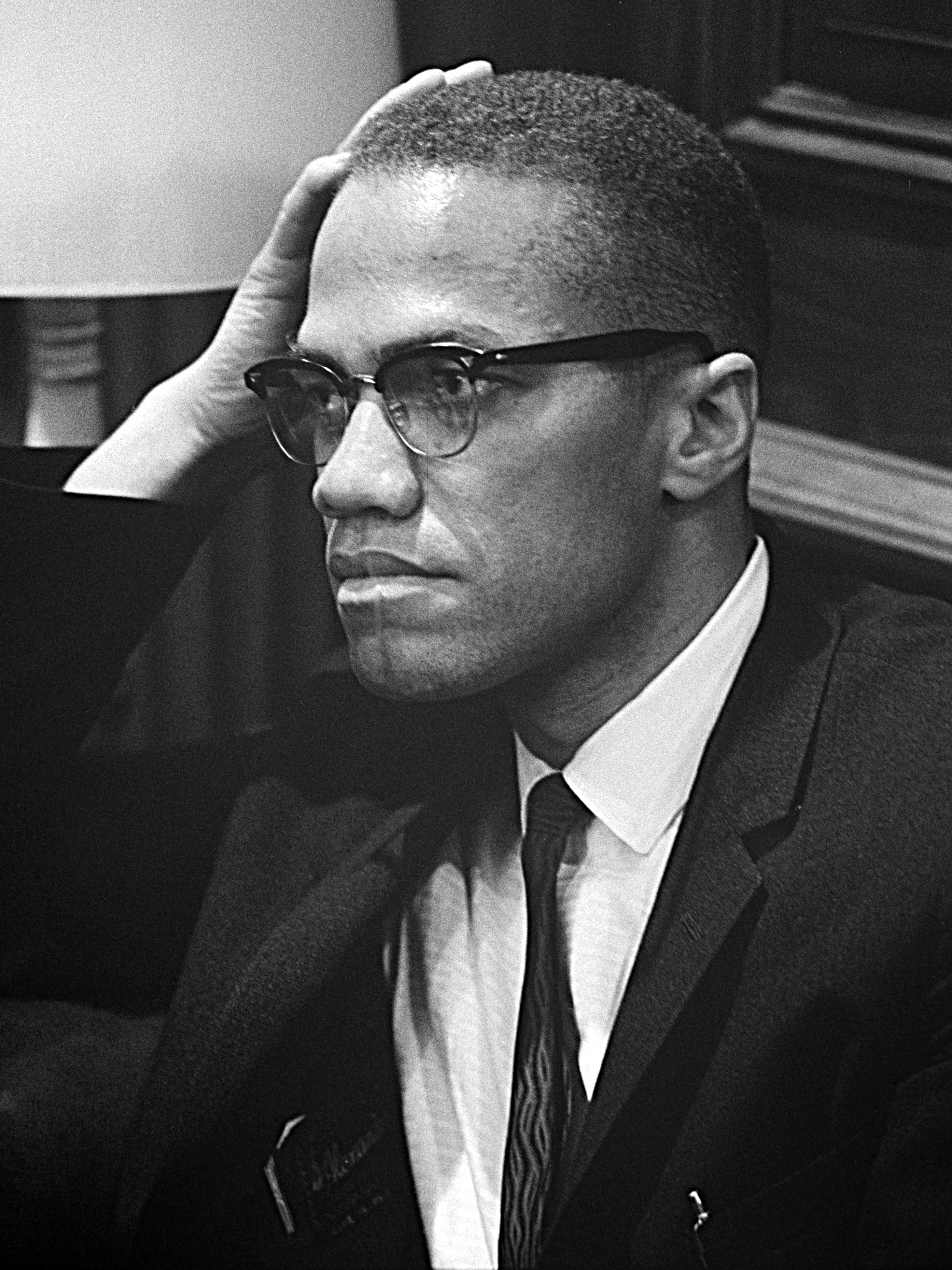Malcolm X najznámejšie citáty
Malcolm X: Citáty v angličtine
Malcolm X on Zionism (1964)
Malcolm X, in conversation with Coretta Scott King (February 1965), as quoted in My life with MLK, Jr. (1969), page 256
Attributed
“We are in a society where the power is in the hands of those who are the worst breed of humanity.”
Speech in Rochester, New York (16 February 1965)
Malcolm X Speaks (1965)
The Ballot or the Bullet (1964), Speech in Detroit, Michigan (12 April 1964)
Mr. Muhammad teaches that as soon as we separate from the white man, we will learn that we can do without the white man just as he can do without us. The white man knows that once black men get off to themselves and learn they can do for themselves, the black man's full potential will explode and he will surpass the white man.
Playboy interview, regarding the ambition of the Black Muslims
Attributed
On the assassination of John F. Kennedy, quoted in New York Times (2 December 1963) "Malcolm X Scores U.S. and Kennedy" http://select.nytimes.com/gst/abstract.html?res=FB0812FE35541A7B93C0A91789D95F478685F9. p. 21.
The Ballot or the Bullet (1964), Speech in Cleveland, Ohio (April 3, 1964)
Zdroj: Malcolm X Speaks (1965), p. 21
I mean, this is what you say. "I ain't left nothing in Africa," that's what you say. Why, you left your mind in Africa.
Malcolm X Speaks (1965)
The Ballot or the Bullet (1964), Speech in Detroit, Michigan (12 April 1964)
He'd say, "Any place is better than here."
Speech (9 November 1963). p. 11.
Malcolm X Speaks (1965)
Zdroj: Malcolm X Speaks (1965), p. 21
The Ballot or the Bullet (1964), Speech in Cleveland, Ohio (April 3, 1964)
Malcolm X on Zionism (1964)
Zdroj: The Autobiography of Malcolm X (1965), p. 418
“Any time you see someone more successful than you are, they are doing something you aren't.”
The Autobiography of Malcolm X (1965)
Malcolm X Speaks (1965)
" Malcolm X: Make It Plain http://www.pbs.org/wgbh/amex/malcolmx/filmmore/pt.html," from The American Experience, season 6, episode 6, PBS (first aired 26 January 1994)
Attributed
TV interview http://www.youtube.com/watch?v=cReCQE8B5nY after 90-day moratorium (March 1964)
The Ballot or the Bullet (1964), Speech in Cleveland, Ohio (April 3, 1964)
As featured in The Autobiography of Malcolm X http://www.colostate.edu/Orgs/MSA/find_more/m_x.html as told to Alex Haley and cited in Malcolm X: Why I Embraced Islam by Yusuf Siddiqui.
Text of a letter written following his Hajj (1964)
The Ballot or the Bullet (1964), Speech in Cleveland, Ohio (April 3, 1964)
Malcolm X: The Man and his Times, edited by John Henrik Clarke and published by Africa World Press in 1990, p. 304 http://books.google.de/books?id=43NsDThPEzgC&q=We+need+more+light+about+each+other.+Light,+creates+understanding,+understanding+creates+love,+love+creates+patience,+and+patience+creates+unity.+Once+we+have+more+knowledge+(light)+about+each+other,+we+will+stop+condemning+each+other+and+a+United+front+will+be+brought+about&dq=We+need+more+light+about+each+other.+Light,+creates+understanding,+understanding+creates+love,+love+creates+patience,+and+patience+creates+unity.+Once+we+have+more+knowledge+(light)+about+each+other,+we+will+stop+condemning+each+other+and+a+United+front+will+be+brought+about&hl=de&sa=X&ei=RhSgT_XXCsHVtAaW_sGlAQ&ved=0CDIQ6AEwAA
Speech at Founding Rally of the Organization of Afro-American Unity (28 June 1964), as quoted in By Any Means Necessary (1970)
By Any Means Necessary (1970)
Chapter 11, paragraph 59 http://www.uri.edu/library/inscriptions/almamater.html
The Autobiography of Malcolm X (1965)
Zdroj: The Ballot or the Bullet (1964), Speech in Detroit, Michigan (12 April 1964)
Zdroj: The Ballot or the Bullet (1964), Speech in Cleveland, Ohio (April 3, 1964)
